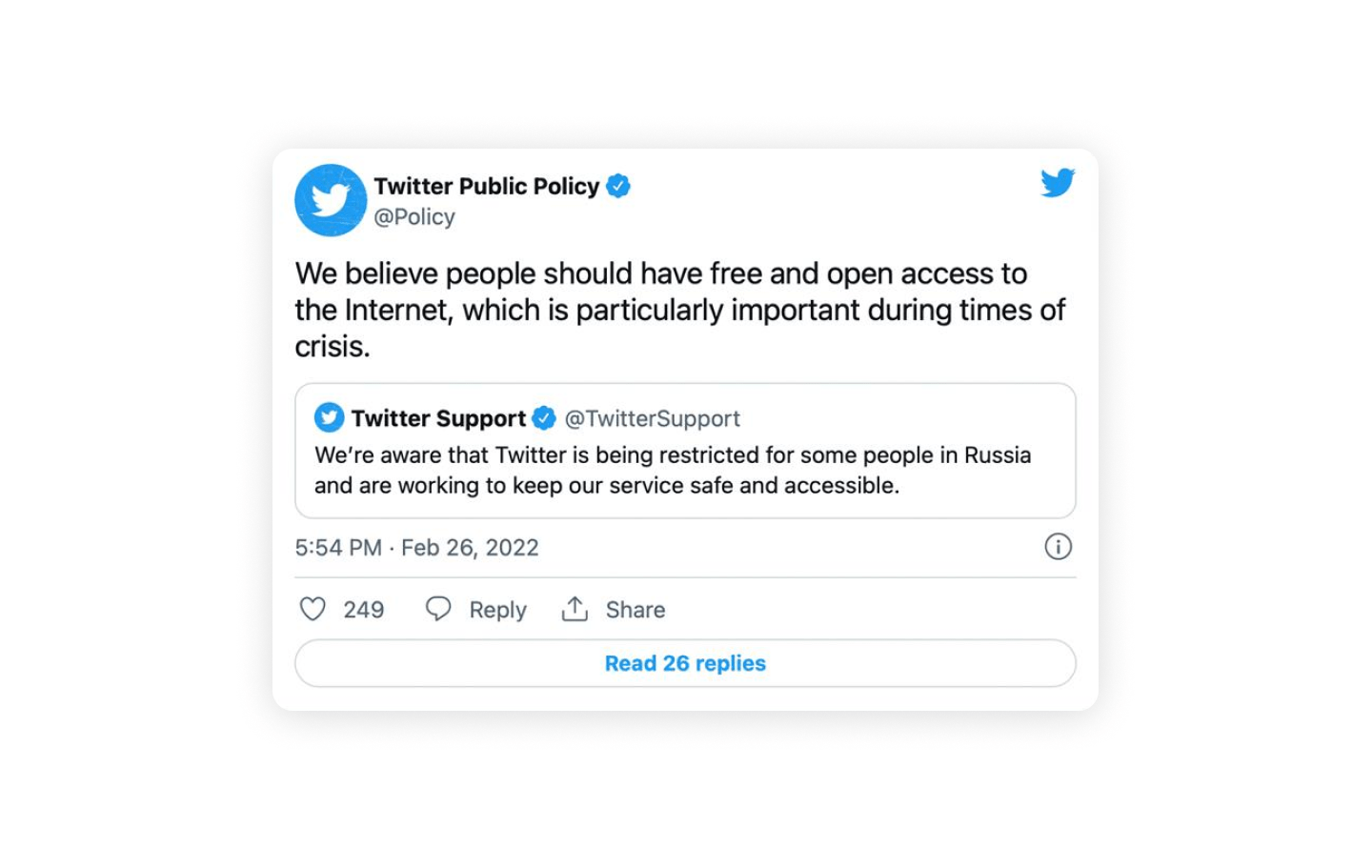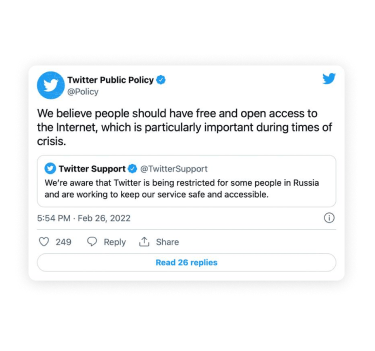In the first hours of the invasion, the movement of Russian tanks can already be followed live on Google Maps, Ukrainians post footage of battles on TikTok and Reddit – while they are happening! – and document on Twitter which Russian helicopters have crashed and how one can defend oneself against tanks with cardboard boxes.
Ukrainians and supporters around the world share information on all channels about relief supplies and entry regulations for refugees, escape routes, translation assistance and call for donations. IT experts, programmers and copywriters are organizing themselves as a volunteer cyber army via Telegram. And a 19-year-old from Florida tweets live where the Russian oligarchs' planes are flying to.
More important than the content of some messages, however, is the fact that the speed at which posts travel around the world has increased dramatically. This increase in speed signifies nothing less than a turning point in history.
"When I was a reporter stationed in Iraq for the US Army in 2016, same-day information sharing was considered fast by Department of Defence standards," writes journalist Daniel Johnson. "What is happening in Ukraine is only possible on this scale if citizens and soldiers across the country have easy access to mobile phones, the internet and therefore social media apps. A large-scale modern war is being broadcast live to the world minute by minute, battle by battle, death by death."
Not only the speed, but also the variety of sources is new. While in the Arab Spring – the first live broadcast revolution – most of the information on the web spread fragmentarily and comparatively slowly via large social networks and established media, Ukrainians are resorting to all real-time messengers, small and large networks as well as other info apps. Never before has the global editorial society been able to get such a comprehensive picture of a war within such a short period of time.



